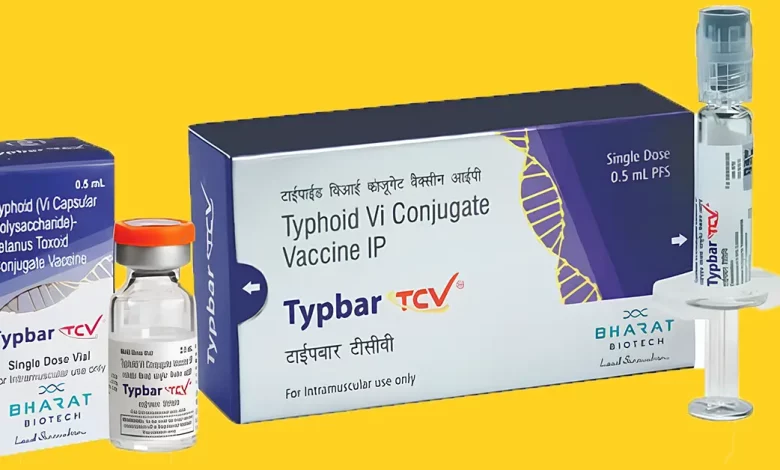Daily Current Affairs for UPSC
Typhoid vaccine made in India
Syllabus: Science and technology[GS Paper-3]

Context: A study conducted in Malawi on children aged nine months to 12 years has shown that the Typbar typhoid vaccine, developed by Bharat Biotech in Hyderabad, remains effective for at least four years.
More on news:
- The trial conducted in a typhoid fever-endemic setting is the first of its kind, as it is a randomised, controlled, double-blind study.
- The vaccine being tested has shown an efficacy rate ranging from 70.6% to over 79%.
- Notably, the study has provided evidence that the vaccine offers long-term protection for more than 48 months, with only a minimal decline in efficacy over time.
- This finding supports the cost-effectiveness of the vaccine.
- Secondly, the study focuses on the robust immune response induced by conjugated typhoid vaccines among those above six months.
- In particular, it refers to two WHO-prequalified vaccines such as Bharat Biotech’s Typbar TCV and Vi-CRM197 by Biological E.
- However, the possibility of revival of Salmonella Typhi bacteria in vaccinated children after the vaccine shedding protection remains a source of concern.
- This issue draws attention to the necessity of further studies of the long-term efficiency of the vaccine and the advantages of the booster shot.
- At present, such concerns are being addressed in an ongoing immunogenicity study of a booster dose in Malawi.
About the Typbar vaccine:
- Typbar TCV is a typhoid vaccine that is the first ever of its kind is clinically proven.
- It is a mixture of the polysaccharide from Salmonella typhi Ty2 and Tetanus Toxoid.
- This vaccine increases the effectiveness of our immune response by focusing on high-affinity antibodies and long-term immune memory.
- The vaccine is the only one that has been approved for use in children and infants younger than 2 years.
- Its WHO prequalification is a further indication of its global importance as a typhoid fever preventive.
Typhoid:
- This is an acute infection that is caused by Salmonella Typhi that is known to spread only from one person to another.
- It is normally transmitted by infected food or water.
- When the disease is not treated, around 5 percent of the individuals who recover from the infection carry the bacteria and are capable of infecting others for more than a year.
Native:
- Typhoid fever is widespread in some parts of Asia, Africa, the Caribbean, Central and South America, and the Middle East and so constitutes a hazard, especially among travelers.
Symptoms:
- Typhoid may be mild, moderate or severe with symptoms like fever, tiredness, ill feeling, sore throat, persistent cough and headache. If not treated, these symptoms could persist for approximately one month.
Prevention:
- Some of the options for people more than 6 years include live capsule or an inactivated shot.
- The vaccine should be administered 14 days prior to travel.
- Nevertheless, the vaccine efficacy ranges between 50% and 80%.
Treatment:
- Prompt administration of antibiotics is required for treatment, but the emergence of drug-resistant strains poses a threat to the effectiveness of such treatments.
- MDR typhoid, that is, resistance to several types of antibiotics, has declined in Bangladesh and India since the beginning of the 21st century, remained at a low level in Nepal, and increased slightly in Pakistan.
- A more current threat is XDR typhoid, which resists at least five classes of antibiotics and is a major public health challenge in India, Bangladesh, Nepal, and Pakistan.
Source: TH





.png)



